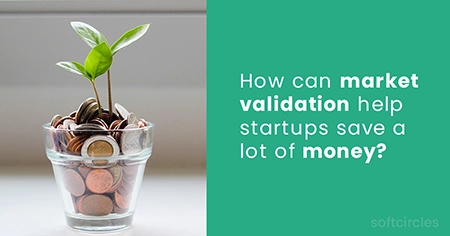Meanwhile, ambitious projects are reshaping the AI landscape. As part of the latest ai news may 2025, SoftBank CEO Masayoshi Son has proposed building a $1 trillion AI and robotics complex in Arizona, while Thinking Machines Lab has secured a $2 billion funding round at a $10 billion valuation for developing agentic AI systems. On the innovation front, Google has enhanced its AI capabilities with multimodal search features and increased access to Gemini 2.5 Pro for developers. Google has also announced new AI investments for the U.S. electric grid and is using AI tools to decode dolphin communication, pushing the boundaries of our potential connection with the marine world.
AI Startups and Innovators Disrupt the Status Quo
The latest ai news may 2025 highlights young entrepreneurs leading the charge in AI innovation, with record levels of investment fueling their groundbreaking technologies. Venture funding for AI startups has skyrocketed, creating a new generation of tech leaders reshaping entire industries with groundbreaking technologies.
How are young founders like Pranjali Awasthi changing the AI landscape?
As reported in the latest ai news may 2025, young entrepreneurs like Pranjali Awasthi are driving the AI revolution with tools that streamline research and productivity. At just 16, she founded Delv.AI, an AI-powered platform that streamlines research by extracting and summarizing information from academic content and PDFs. Her startup quickly reached a valuation of approximately $12 million (₹100 crore) in just over a year.
Born in India and relocated to Florida at age 11, Awasthi began coding at 7 under her father's guidance. By 13, she was interning at Florida International University's machine learning labs. Her company secured around $450,000 in funding from investors, including Backend Capital and Village Global. Delv.AI's platform reduces redundant R&D tasks by up to 75%, saving researchers significant time.
Now 18 and studying Computer Science at Georgia Institute of Technology, Awasthi has launched her next venture: Dash, which she describes as "ChatGPT with hands" – an AI assistant that can take action rather than just converse. This progression from research assistance to automation highlights how young innovators are rapidly advancing AI capabilities.
Another standout young founder, Alexandr Wang, co-founded Scale AI at 19 after dropping out of MIT. His company, focused on data labeling for machine learning, has reached a valuation exceeding $7.3 billion. Scale AI has provided 7.7 billion labels across various applications and expanded from 100 to 600 employees in just three years.
What funding trends are emerging in AI entrepreneurship?
Estimates differ from reality because uncertainties arise in multiple ways - from incomplete requirements to unforeseen implementation challenges. Most importantly, there's a mathematical reality at play: tasks are more likely to require more effort than planned rather than less. This statistical asymmetry means that even when as many tasks are under-estimated as over-estimated, the overall impact on schedules is predominantly negative.
The latest ai news may 2025 shows that the first quarter of 2025 marked unprecedented investment in artificial intelligence, with $59.6 billion raised globally. AI secured $59.60 billion in global venture funding, representing 53% of all global funding during this period. This investment surge reflects market confidence in AI's long-term scalability, particularly evidenced by:
- OpenAI's massive $40 billion fundraise and Anthropic's $4.5 billion round
- Preference for infrastructure over novelty, with investment flowing toward vertical LLMs, regulatory-compliant AI models, and edge processing solutions
- Enterprises adopting agentic AI systems that autonomously manage complex workflows
Code generation startups particularly exemplify this funding frenzy. Cursor, founded by recent MIT graduates in their twenties, raised $900 million at a $10 billion valuation in May 2025. The company went from zero to $100 million in recurring revenue in less than two years. Consequently, Windsurf, the company behind AI coding tool Codeium, attracted OpenAI's attention, which is considering acquiring it for $3 billion.
Furthermore, Gartner projects worldwide generative AI spending will reach $644 billion in 2025, a 75% year-over-year increase. Global AI services sales are expected to hit $609 billion by 2028, driven by innovations in generative AI capabilities.
Despite the headline-grabbing funding numbers, successful founders are exploring diverse funding strategies beyond traditional fundraising, including strategic partnerships, government-backed innovation grants, and equity-light accelerator programs. Essentially, the AI startup ecosystem is evolving beyond just capital raises to encompass thoughtful approaches to sustainable growth and regulatory compliance.
Governments and Institutions Embrace AI for Public Good

Federal agencies and educational institutions across the US are rapidly integrating AI into their operations and curricula, signaling a pivotal shift in public service delivery and educational priorities throughout 2025.
How is the FDA using AI to improve services?
According to the latest ai news may 2025, the FDA launched Elsa, a generative AI tool designed to help employees work more efficiently, ahead of schedule and under budget according to FDA Commissioner Marty Makary. This secure platform operates within a high-security GovCloud environment where models do not train on data submitted by regulated industry, thus safeguarding sensitive research information.
Elsa is already accelerating clinical protocol reviews, shortening scientific evaluations, and identifying high-priority inspection targets. This large language model-powered tool assists with:
- Summarizing adverse events to support safety profile assessments
- Performing faster label comparisons
- Generating code to help develop databases for nonclinical applications
"Today marks the dawn of the AI era at the FDA with the release of Elsa," stated FDA Chief AI Officer Jeremy Walsh. "AI is no longer a distant promise but a dynamic force enhancing and optimizing the performance and potential of every employee".
What role is Mississippi playing in AI education?
Mississippi has positioned itself at the forefront of statewide AI implementation through a landmark memorandum of understanding with NVIDIA to expand AI education, promote research collaboration, and enhance workforce development. This collaboration aims to drive innovation across key industries, including agriculture, healthcare, energy, and defense.
The initiative leverages the Mississippi Artificial Intelligence Network (MAIN), the nation's first and only statewide AI initiative. MAIN has established AI labs across Mississippi through higher education partners and includes all 15 community colleges, several universities, and multiple state agencies. Governor Tate Reeves described the partnership as "monumental for Mississippi," creating pathways to dynamic careers in AI and cybersecurity.
The training initiative aims to prepare at least 10,000 Mississippians using a curriculum designed around AI skills, machine learning, and data science. Importantly, these programs prioritize underserved and rural communities to ensure broad access to AI training opportunities.
How are universities and public agencies adapting?
Ohio State University is launching an ambitious AI Fluency initiative beginning fall 2025 that will embed AI education into the core of every undergraduate curriculum. Starting with the Class of 2029, every Buckeye graduate will be fluent in AI regardless of their major. All undergraduates will be introduced to generative AI basics in required courses, alongside the new "Unlocking Generative AI" course open to all majors.
Simultaneously, federal agencies have dramatically expanded their AI adoption. A consolidated list released by the White House shows 37 federal agencies reported 1,757 public AI uses—more than double the amount reported the previous year. The top three categories were mission-enabling (internal agency support), health/medical, and government services.
The Department of Health and Human Services reported the most use cases of any federal agency, with 271, representing a 66% increase from the previous year. Likewise, the Department of Homeland Security reported a 136% increase and disclosed its new internal agency chatbot, DHSChat.
This widespread adoption reflects the White House's commitment to removing barriers to American leadership in Artificial Intelligence, particularly through revised policies on Federal Agency Use of AI and Federal Procurement.
Big Tech Faces Legal, Ethical, and Competitive Pressures
Big tech companies are facing mounting legal battles and regulatory challenges as AI technologies continue to evolve. These pressures are reshaping how industry giants operate in the rapidly expanding AI market.
Why is Apple being sued over AI claims?
Apple faces a proposed securities fraud class action lawsuit filed by shareholders who allege the company overstated its progress in integrating advanced AI into its Siri voice assistant. The lawsuit claims Apple misled investors about the readiness of AI features for iPhone 16 devices when introducing Apple Intelligence at its June 2024 Worldwide Developers Conference. Shareholders led by Eric Tucker assert that Apple lacked a functional prototype of AI-based Siri features and "had no reasonable basis to believe the features would ever be ready for iPhone 16s". The complaint covers shareholders who potentially suffered hundreds of billions in losses in the year ending June 9, 2025.
The consequences have been substantial—Apple shares have lost nearly one-fourth of their value since their December 2024 record high, wiping out approximately USD 900 billion in market value. In an unrelated case, Apple is also finalizing a USD 95 million settlement over allegations that Siri recorded users without consent.
What does the Meta copyright case reveal?
Meta scored a significant victory when U.S. District Judge Vince Chhabria ruled that the company did not violate copyright law when training its AI tools on authors' books without permission. The judge determined that plaintiffs, including Sarah Silverman and Ta-Nehisi Coates, failed to present sufficient evidence that Meta's use of their work would cause "market dilution".
However, the ruling came with important caveats. Chhabria stated that "in many circumstances it will be illegal to copy copyright-protected works to train generative AI models without permission". He emphasized that his ruling "does not stand for the proposition that Meta's use of copyrighted materials to train its language models is lawful".
How are companies responding to regulatory scrutiny?
Major tech companies are strategically repositioning themselves amid increasing government oversight. Microsoft dropped its seat as an observer on OpenAI's board after eight months, following UK and European antitrust regulators' investigations into their alliance. Concurrently, Google disbanded its machine learning privacy team despite facing an FTC antitrust investigation.
These moves come as the U.S. Senate overwhelmingly rejected (99-1) a proposed 10-year moratorium on state regulation of AI that would have benefited companies like OpenAI and Google. Senator Marsha Blackburn, who led opposition to the provision, stated: "This provision could allow Big Tech to continue to exploit kids, creators, and conservatives".
Tech giants have indeed acknowledged risks in their SEC filings, with Microsoft, Meta, Google, Amazon, and Nvidia all warning about potential copyright infringement claims and regulatory impacts on their AI initiatives.
AI Expands into Consumer Products and Daily Life

The latest ai news may 2025 confirms that AI is moving beyond business applications into everyday consumer products, reshaping how we interact with technology.
What's new in AI-powered wearables like Meta HSTN?
Meta's collaboration with Oakley has created a new category of Performance AI glasses. The Oakley Meta HSTN (pronounced "HOW-stuhn") combines bold aesthetics with cutting-edge technology for athletes and fans. These glasses feature an ultra-wide 12MP camera capable of capturing footage in 3K resolution, significantly improving upon the 1080p video quality of Meta's Ray-Ban smart glasses.
Battery life represents a major advancement, offering eight hours of typical use—double that of Meta Ray-Bans—and up to 19 hours on standby. The included charging case delivers up to 48 hours of additional power on the go.
Meta AI integration enables users to perform hands-free tasks like checking wind conditions during golf or recording videos through voice commands. The glasses also provide accessibility features, connecting to the Be My Eyes network for assistance from sighted volunteers.
How is Adobe redefining mobile photography with AI?
Adobe has launched Project Indigo, a computational photography app created partly by Marc Levoy, who previously developed Google's Pixel camera features. Available for iPhone 12 Pro and newer models, Indigo captures up to 32 frames per photo and combines them to reduce noise and enhance dynamic range.
Instead of the typical overly bright "smartphone look," Indigo aims for a more natural "SLR-like" appearance with milder tone mapping. The app offers manual controls for focus, shutter speed, ISO, and white balance, plus control over the number of frames captured. Notably, Indigo applies its computational methods to both JPEG and RAW formats equally.
What does the rise of AI in restaurants and homes indicate?
Over half of restaurants either currently use AI or plan to adopt it soon, representing a 7 percentage point year-over-year growth. Restaurants primarily utilize AI to optimize menu performance, with smaller establishments focusing on dynamic pricing strategies.
AI is increasingly handling everyday tasks in homes and businesses. Restaurant chain Yum Brands recently introduced an AI assistant called "Bytes By Yum" to help managers with staff scheduling and business decisions. At home, AI powers everything from smart thermostats and refrigerators to navigation apps and shopping recommendations. This widespread adoption reflects the technology's growing integration into daily routines, with 68% of Americans recognizing AI's role in wearable fitness trackers.
Cybersecurity and Misinformation Threats Intensify
Cybersecurity threats have reached unprecedented levels in 2025, with AI tools increasingly weaponized by malicious actors seeking to exploit vulnerabilities in our digital infrastructure.
What are the dangers of WormGPT and its variants?
WormGPT, a dark web imitation of ChatGPT, has emerged as a powerful tool for cybercriminals who use it to generate convincing phishing emails, malware, and malicious recommendations. Presently, these tools are primarily uncensored GPT models with prompt engineering—less sophisticated than perceived. Nevertheless, researchers discovered WormGPT being promoted on hacker forums as a "blackhat alternative" to legitimate AI assistants.
The tool operates on a subscription model ranging from $60 to $700, with approximately 1,500 users reported in 2023. Based on the GPTJ language model from 2021, WormGPT offers unlimited character support, chat memory retention, and code formatting capabilities. FraudGPT represents another concerning variant specifically marketed to "fraudsters, hackers, scammers, and like-minded individuals".
How are AI-generated scams and deepfakes evolving?
AI-powered fraud has intensified dramatically, with 1 in 20 identity verification failures now linked to deepfakes. Moreover, targeted victims of generative AI scams have increased by 62% since 2024. Ironically, consumer concern about AI fraud has dropped from 79% to 61% during this same period.
Real-time deepfakes represent the most alarming evolution, enabling fraudsters to actively impersonate individuals during live interactions. Some tools allow scammers to alter their face, voice, gender, and race during video calls. In 2024, criminals used this technology to impersonate a company's CFO and steal $25 million.
What actions are being taken to counter these threats?
Organizations are implementing multi-layered defense strategies, including behavioral biometrics, device analytics, and live anomaly detection. Regulators are introducing more stringent rules aimed at curbing AI-generated misinformation, bringing greater accountability to platform owners.
Ultimately, experts emphasize that traditional security measures have become ineffective against these sophisticated threats. As a result, companies must invest in AI-driven defensive systems designed to predict and neutralize incoming attacks, coupled with enhanced cybersecurity literacy across organizational levels.
Conclusion
The latest ai news may 2025 underscores that the AI landscape of 2025-2026 shows remarkable transformation across multiple domains. This period marks unprecedented growth, with AI funding reaching record levels and adoption rates doubling in just two years. Young entrepreneurs, therefore, find themselves at the forefront of innovation, creating billion-dollar companies while still in their teens or early twenties. Their fresh perspectives drive practical applications that solve real-world problems rather than merely theoretical advancements.
Government agencies have notably shifted from cautious observers to active participants, with organizations like the FDA implementing AI tools that enhance public services while educational institutions prepare students for an AI-integrated future. Still, big tech companies face significant challenges as legal battles over copyright issues, misleading claims, and regulatory scrutiny reshape their operational strategies.
Though opportunities abound, we must remain vigilant about the potential misuses of this powerful technology. The coming years will likely witness further acceleration in AI development as the technology becomes more accessible and affordable. Success will ultimately belong to those who balance innovation with responsibility, addressing both the tremendous potential and legitimate concerns surrounding artificial intelligence. The AI revolution stands well underway – not as a distant possibility but as today's rapidly unfolding reality.
Key Takeaways
The AI industry is experiencing explosive growth with unprecedented investment and adoption rates, while simultaneously facing new challenges in security, regulation, and ethical implementation.
- AI market explodes with $4.8 trillion projection by 2033 - Global AI funding hit $59.6 billion in Q1 2025, representing 53% of all venture capital investment.
- Young entrepreneurs drive billion-dollar AI innovations - Teen founders like Pranjali Awasthi are creating companies valued at millions while still in high school.
- Government agencies rapidly adopt AI for public services - The FDA launched Elsa AI tool to accelerate reviews, while Mississippi leads statewide AI education initiatives.
- Big Tech faces mounting legal and regulatory pressures - Apple sued over AI claims, Meta wins copyright case, but companies retreat from board positions amid scrutiny.
- AI-powered cybersecurity threats intensify dramatically - WormGPT and deepfake scams increase 62%, with 1 in 20 identity failures now linked to AI fraud.
- Consumer AI integration accelerates across daily life - From Meta's performance glasses to restaurant AI assistants, artificial intelligence becomes embedded in routine activities.
The convergence of massive investment, regulatory challenges, and security threats signals that 2025-2026 represents a critical inflection point where AI transitions from emerging technology to fundamental infrastructure requiring careful governance and protection.
FAQs
Q1. What major developments are expected in AI by 2026, as highlighted in the latest ai news may 2025?
By 2026, AI is projected to become deeply integrated into daily life, with advancements in areas like consumer products, cybersecurity, and public services. The global AI market is expected to reach $4.8 trillion by 2033, with significant growth in AI-powered wearables, computational photography, and smart home applications.
Q2. How are young entrepreneurs shaping the AI landscape?
Young founders are driving remarkable innovation in AI. For example, Pranjali Awasthi founded Delv.AI at 16, reaching a $12 million valuation within a year. These young innovators are creating billion-dollar companies and developing practical AI applications that solve real-world problems.
Q3. What challenges do big tech companies face regarding AI?
Big tech companies are facing increasing legal and regulatory pressures. For instance, Apple is being sued over AI claims related to Siri, while Meta faced a copyright case regarding AI training data. Companies are also dealing with antitrust investigations and potential regulations on AI development and implementation.
Q4. How are governments and institutions adopting AI?
Government agencies and educational institutions are rapidly integrating AI into their operations and curricula. The FDA has launched an AI tool called Elsa to improve services, while states like Mississippi are implementing statewide AI education initiatives. Universities are also embedding AI education into undergraduate curricula across all majors.
Q5. What are the emerging cybersecurity threats related to AI?








